
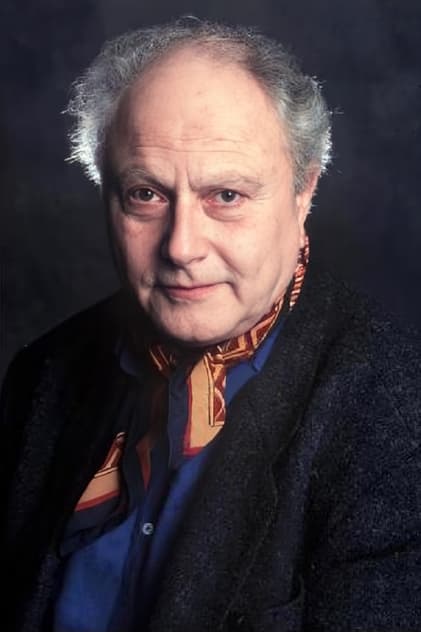
Michel Polac
Born: April 10, 1930
Died: August 7, 2012
in Paris, France
Died: August 7, 2012
in Paris, France
Born on April 10, 1930 into a family of the Parisian bourgeoisie, Michel Polac is the son of a veteran of the First World War, Jewish and Petainist, who died in deportation to Auschwitz during the Second World War, and of whom he does not learn. the conditions of the disappearance than fifty years later. Nephew of Clara Goldschmidt, wife of André Malraux, Michel Polac married an heiress of the Kadjar dynasty, ten years his senior, whom he left after a few weeks. He then married Dominique, a journalist from Vogue magazine. He separates from her a few years later after having had a daughter, Juliette. Finally, he marries Nadia.
In 1947, aged 17, he was spotted by Jean Tardieu and joined the Club d'essai, "experimental laboratory" of the RDF8: "I was still a high school student at Janson de Sailly, says Michel Polac, I animated, with comrades, a high school newspaper made of odds and ends, Entre nous, which we distribute in all the high schools of Paris”. He then multiplies the odd jobs. Worker in a factory of refrigerated locks in Saint-Ouen-sur-Seine, door-to-door insurance agent, cabin boy on a fishing boat in Cassis, he proposed to Jean Tardieu, in 1951, Entry of the authors, broadcast to identify new theater talent.
In 1951, Michel Polac proposed the creation of Entrance of authors, responsible for flushing out new theater talents. Faced with the programme's popularity, Tardieu then offered him, in 1955, to produce Le Masque et la plume on France Inter, with the success that we know (the show is still on the air, even if Polac has left in May 1970). In 1953 he became a literary critic at the newspaper Arts, where he officiated until 1964, then he joined the editorial staff of L'Express. In 1956, he published his first novel "La Vie incertaine" under the sponsorship of Jean Paulhan and Albert Camus. After the radio, he naturally moved on to television, where he presented literary programs (Bibliothèque de Poche, for 4 years, then Post-scriptum, which only survived for two years). He withdrew from the fire of the media for about ten years and devoted himself to filmmaking (Un fils unique in 1969, which received the Georges-Sadoul prize) and writing (Un fils unique in 1970, Le QI ou novel of a gifted in 1978).
The return to television was thunderous in 1981, when he began to host Right of Response, famous for its smoky atmosphere, his rants, even his blows altogether... Since the end of this program, Michel Polac writes a regular literary column in Charlie Hebdo, and has published, among other things, La Luxure in 1999, as well as his Journal in 2000. health, he was replaced on June 9, 2007 by columnist Éric Naulleau.
Absent for almost a year following a stroke, the literary columnist of Charlie Hebdo Michel Polac returned to the columns of the weekly in 2009. He died on August 7, 2012, "of exhaustion, after several illnesses" in the 5th arrondissement from Paris. A few years before his death, he wrote his own epitaph: “Hands-on, he ended up hitting the ground. On August 10, 2012 he was buried in Cabrerolles, in the Hérault.
In 1947, aged 17, he was spotted by Jean Tardieu and joined the Club d'essai, "experimental laboratory" of the RDF8: "I was still a high school student at Janson de Sailly, says Michel Polac, I animated, with comrades, a high school newspaper made of odds and ends, Entre nous, which we distribute in all the high schools of Paris”. He then multiplies the odd jobs. Worker in a factory of refrigerated locks in Saint-Ouen-sur-Seine, door-to-door insurance agent, cabin boy on a fishing boat in Cassis, he proposed to Jean Tardieu, in 1951, Entry of the authors, broadcast to identify new theater talent.
In 1951, Michel Polac proposed the creation of Entrance of authors, responsible for flushing out new theater talents. Faced with the programme's popularity, Tardieu then offered him, in 1955, to produce Le Masque et la plume on France Inter, with the success that we know (the show is still on the air, even if Polac has left in May 1970). In 1953 he became a literary critic at the newspaper Arts, where he officiated until 1964, then he joined the editorial staff of L'Express. In 1956, he published his first novel "La Vie incertaine" under the sponsorship of Jean Paulhan and Albert Camus. After the radio, he naturally moved on to television, where he presented literary programs (Bibliothèque de Poche, for 4 years, then Post-scriptum, which only survived for two years). He withdrew from the fire of the media for about ten years and devoted himself to filmmaking (Un fils unique in 1969, which received the Georges-Sadoul prize) and writing (Un fils unique in 1970, Le QI ou novel of a gifted in 1978).
The return to television was thunderous in 1981, when he began to host Right of Response, famous for its smoky atmosphere, his rants, even his blows altogether... Since the end of this program, Michel Polac writes a regular literary column in Charlie Hebdo, and has published, among other things, La Luxure in 1999, as well as his Journal in 2000. health, he was replaced on June 9, 2007 by columnist Éric Naulleau.
Absent for almost a year following a stroke, the literary columnist of Charlie Hebdo Michel Polac returned to the columns of the weekly in 2009. He died on August 7, 2012, "of exhaustion, after several illnesses" in the 5th arrondissement from Paris. A few years before his death, he wrote his own epitaph: “Hands-on, he ended up hitting the ground. On August 10, 2012 he was buried in Cabrerolles, in the Hérault.
Movies for Michel Polac...

Title: Il était une fois Champs-Élysées
Character: Self (archive footage)
Released: December 21, 2022
Type: TV

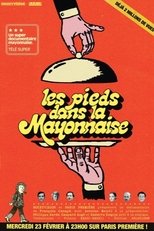
Title: Les Pieds dans la mayonnaise : Les Irrévérencieux des années 70
Character: Self - journalist
Released: February 26, 2022
Type: Movie


Title: Télévision (histoires secrètes)
Character: Self (archive footage)
Released: April 20, 1996
Type: TV
The behind-the-scenes story of French television… This documentary unveils the lesser-known history of two audiovisual decades that have shaped today's television. To explain from the break up of the French broadcasting service ORTF, in 1974, to the creation of Arte, via the birth of Canal+, the life and death of La Cinq and the privatization of TF1 — the succession of political, economic and cultural decisions that have shaped what is known as the “PAF” (French Audiovisual Landscape).

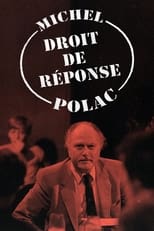
Title: Droit de Réponse
Character: Self (Host)
Released: December 12, 1981
Type: Movie
"Droit de Réponse" (Right of Reply) is a French debate program broadcast between December 12, 1981 and September 19, 1987 on the TF1 channel, presented by Michel Polac and produced by Maurice Dugowson. Broadcast live on a weekly basis, on Saturdays from 8.30 p.m., the right of reply has been the source of many controversies, due to the various speakers who have come to present their point of view on the show (which leads to famous scandals , remained in the memory of viewers), but also for the variety and relevance of the topics covered, which ensured the success of the program on the air for several years. On French television, this program is considered by some observers as a “pioneer program in terms of controversy-show or clash, in modern language”.

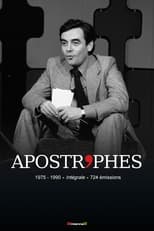
Title: Apostrophes
Character: Self
Released: January 10, 1975
Type: TV
Apostrophes was a live, weekly, literary, prime-time, talk show on French television created and hosted by Bernard Pivot. It ran for fifteen years (724 episodes) from January 10, 1975, to June 22, 1990, and was one of the most watched shows on French television (around 6 million regular viewers). It was broadcast on Friday nights on the channel France 2 (which was called "Antenne 2" from 1975 to 1992). The hourlong show was devoted to books, authors and literature. The format varied between one-on-one interviews with a single author and open discussions between four or five authors.



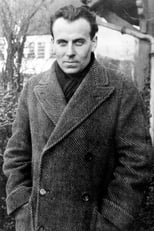
Title: D'un Céline l'autre
Character: Self - Interviewer
Released: May 8, 1969
Type: Movie
Passers-by, those who knew him in his youth, René Barjavel, witness of his beginnings, his wife, his doctor, writers ... By questioning them Michel Polac tries to better understand the troubled personality of Louis-Ferdinand Céline, Notorious anti-Semite and genius writer.


